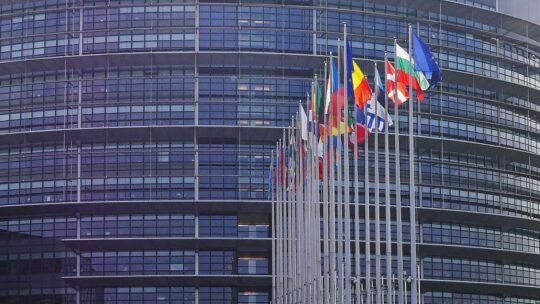
With 75 percent of the vote counted, the centre-right New Democracy party was on track to win the first national elections since Greece exited a bailout regime a year ago, signalling a clean break with years of firebrand populism and a return to mainstream politics.
Initial results give New Democracy 39.6 percent of the vote, a strong mandate in a country governed for a decade by fragile coalitions.
Prime Minister Alexis Tsipras conceded defeat in a live TV broadcast, saying, “The result has been determined … but we will be back.”
Kyriakos Mitsotakis of New Democracy thanked the Greek people in a victory speech, saying, “I know the difficulties lying ahead. … I don't request a grace period because we don't have time for it.” He added, “Transparency and meritocracy will return to Greece and our country's voice will be heard in Europe.”
Mitsotakis will be sworn in as prime minister at 1 p.m. Monday.
The results suggest a complete reversal of fortunes in Greece, with a return to a party that has been a pillar of Greece's pre-bailout establishment. Initial projections for the ruling Syriza, Coalition of the Radical Left party, give it 31.6 percent of the vote. In May, Syriza called a snap election after suffering a major blow in European Parliament elections.
Mitsotakis is the scion of a Greek political dynasty whose father also served as the leader under the same party.
After studying at Harvard and Stanford, Mitsotakis worked in the banking sector before launching his political career, which saw him serve as minister of administrative reform between 2013 and 2015.
A liberal reformist, Mitsotakis promises to rebrand the country and change its image as Europe's problem child in the wake of an eight-year depression that saw its economy slashed by 25 percent — the worst contraction in a developed economy since the end of World War II.
Mitsotakis says his priority is to reignite the economy by slashing taxes and regulations while attracting investment.
Greece's economic recovery is underway, although still weak and only forecast to grow by about 2 percent annually for the next three years.
Mitsotakis’ plan is to implement rapid changes, such as privatization, and transform Greece into a more business-friendly country. He will then go to the country's lenders in a bid to negotiate a new deal.
“I believe I can negotiate with the Europeans more fiscal space and the markets are showing that they are quite excited about us coming into power,” he has said. Much of his success depends on clinching this deal.




